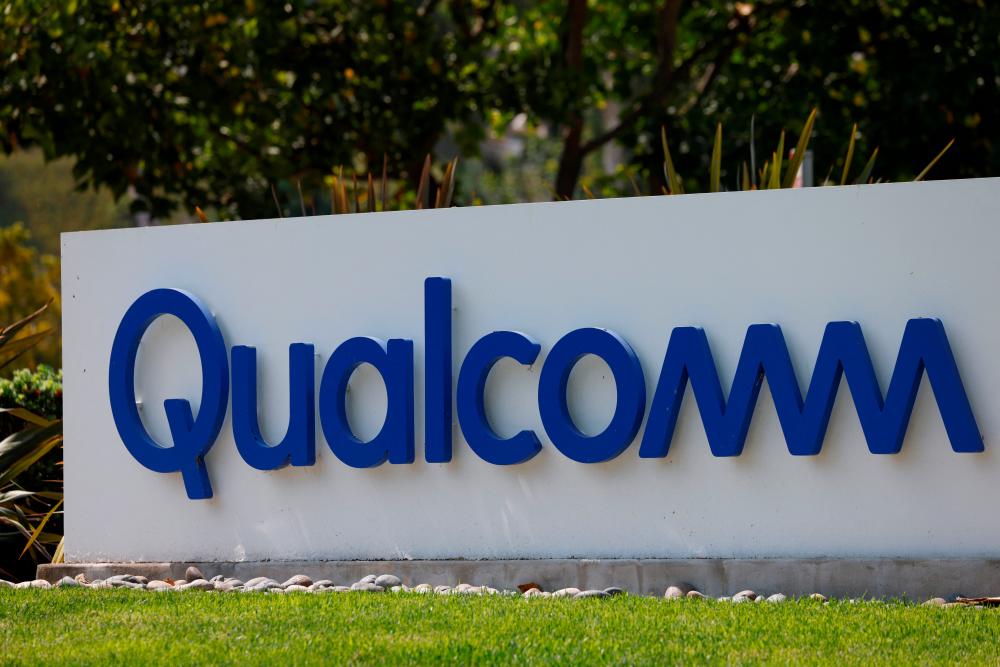BANGALORE/OAKLAND: Qualcomm Inc forecast second-quarter revenue and profit below Wall Street estimates on Thursday (Feb 2) as the company grapples with the combined toll of weak demand for smartphones and a supply glut.
The stock, which initially rose 2.7% in after-hours trading, fell 1%.
“Discussions with mobile service providers revealed a continued and deepening weakness in smartphone demand globally which doesn’t bode well for Qualcomm,” said Maribel Lopez, tech analyst at Lopez Research.
Still, while inflation and macroeconomic uncertainty has hurt consumer electronics sales, Qualcomm has been somewhat buffered by the fact it focuses on premium smartphones, a market that has higher margins. It has also diversified, pushing into new fast-growing areas such as automotive.
The chipmaker forecast current quarter revenue in the range of US$8.7 billion to US$9.5 billion (RM36.9 billion to RM403.2 billion), compared with analysts’ estimates of US$9.55 billion, according to Refinitiv data.
Its fiscal first quarter revenue dropped 12% year-on-year to US$9.46 billion, below Wall Street expectation of US$9.60 billion as Qualcomm also grapples with weak demand for smartphones and a supply glut.
Smartphone shipments dropped 18.3% in the quarter ended Dec 31 marking the largest ever quarterly slump, according to data from research firm IDC, as even the holiday shopping season could not revive battered consumer spending.
Smartphone chip firms including Apple supplier Qorvo forecast downbeat earnings as its customers continued to clear bloated inventory. Analysts at Cowen expect smartphone shipments will fall 4% this year as recovery in China demand will take some time following a big Covid-19 outbreak.
First-quarter revenue from Qualcomm’s handset business, which makes up the largest chunk of total sales, fell 18% on year to US$5.75 billion, compared to a 40% growth in the previous quarter.
It expects adjusted earnings per share to be between US$2.05 and US$2.25, compared to analysts expectations of US$2.26 per share. – Reuters










